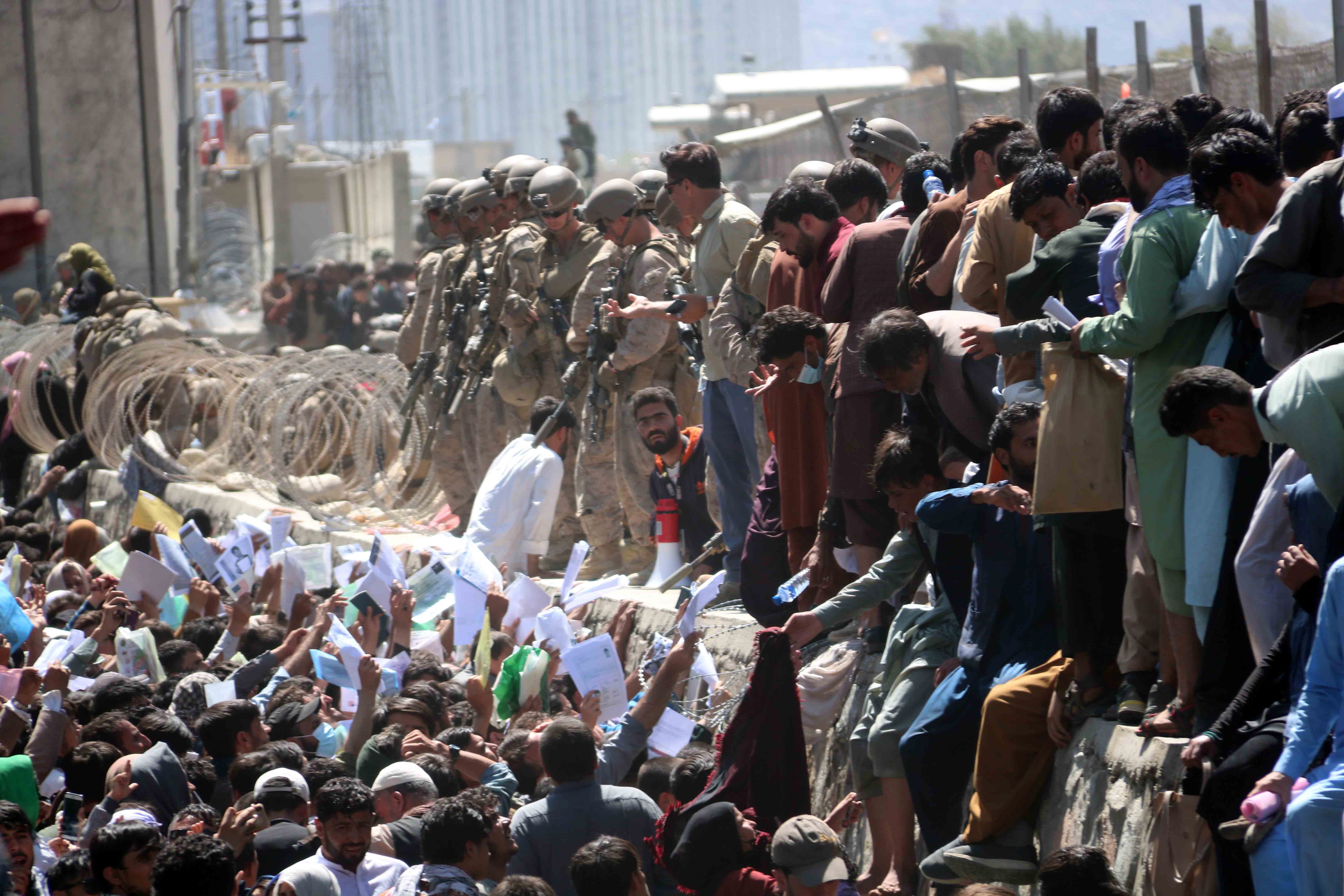Why the Afghan withdrawal went so wrong
Dominic Raab and Boris Johnson don’t show up well in this tragi-comedy written by a whistleblower, writes Sean O’Grady


Usually a whistleblower tells the world something shocking that they didn’t know. Raphael Marshall, a former desk officer at the Foreign Office, is telling us about something which we already know is shocking – the “dysfunctional and chaotic” British and allied exit from Afghanistan in August. That is not to say it is lacking in impact; it adds much colour to an already damning outline of national shame.
What Marshall has done is to explain, rather embarrassingly for the government, why it was that things went so wrong so rapidly. Before the written testimony Marshall submitted to the Commons Foreign Affairs Committee, there may have been a certain amount of allowance made for the pressures of the time, and in particular the rapid cascading collapse of the Afghan government and the remarkably unchallenged advance of the Taliban towards Kabul. The then foreign secretary, Dominic Raab, claimed that no one saw that coming – a claim disputed even then – but it now seems that that element of surprise was compounded by complacency, neglect and incompetence in the organisation of the UK retreat.
The result, as Marshall states with a force that brings one up short, was that only a few of the thousands of Afghans with a genuine claim for asylum and evacuation had their emails read, and: “It is clear that some of those left behind have since been murdered by the Taliban.” There is nothing that can now be done for them. The government is still struggling to establish an Afghan resettlement scheme.
It was also clear in the autumn that the absence on holiday of Raab was a key factor in the failure of the operation – that he made an error of judgment has been acknowledged by Raab himself. What Marshall adds is that Raab didn’t understand what was happening, and was fussy and slow in making critical decisions – a different and more damaging picture of what Raab was actually doing as a minister.
The impression is that Raab, belying his image as a tough, forceful figure, was over-promoted to the Foreign Office merely because of his Brexit credentials and relatively strong performance in the 2019 Conservative leadership election – not necessarily a good guide to executive prowess. He was disliked by the diplomats, and there were rumours he was bored in the job. The whistleblower has in any case set back still further whatever remaining political ambitions Raab might have. As justice secretary, Raab has, arguably, now regressed to about his right level, a powerful modern case study in the application of the Peter principle.
Raab, who holds a black belt in karate and is combative by nature, has probably done himself few favours by hitting back at young Marshall, suggesting he was “dislocated” from decision-making and ignorant about “operational pressures” without specifically rebutting the detail of the Marshall account of the debacle.
Had Boris Johnson listened to Raab’s bleatings during the reshuffle, and retained him as foreign secretary, things would be different. But Johnson had to demote him because of the genuine anger on the Tory backbencher about the betrayal of Afghans who had served British forces and other entities loyally. Raab, however, remains deputy prime minister. Though it amounts to little more than a prestigious title (it has no constitutional standing and is what the holder and the prime minister want it to be) Raab has laid a partial claim to luxury grace and favour official accommodation at Chevening (where he hosted a bash for Tory activists from his Esher constituency days after the fall of Kabul). Raab will probably be fortunate to hang on to his country pad and fancy job title in the months ahead. His role in the humiliation of Britain during the fall of Afghan looks even larger and more abject than previously believed.
The whistleblower’s evidence has also revived the tragi-comedy of Pen Farthing and his animal rescue mission. To put things at their bluntest, the accusation is that the prime minister ordered the rescue of some 173 dogs and cats from an Afghan animal sanctuary at the behest of his wife, Carrie, an animal welfare campaigner. Animals, perhaps, were prioritised over human beings who happened to have brown skin. Not only does this add to the narrative of an unelected spouse eccentrically dictating official policy, but doing so in direct opposition to the defence secretary, Ben Wallace. It makes the prime minister look even more weak and foolish, at a time when frustration about failings within the party has been intensifying. A poor Tory showing in the North Shropshire by-election, following last week’s disappointing result in Old Bexley and Sidcup, can only add to Johnson’s woes. The “narrative” is not going the prime minister’s way any more than it is helping rehabilitate Dominic Raab.

Join our commenting forum
Join thought-provoking conversations, follow other Independent readers and see their replies
Comments